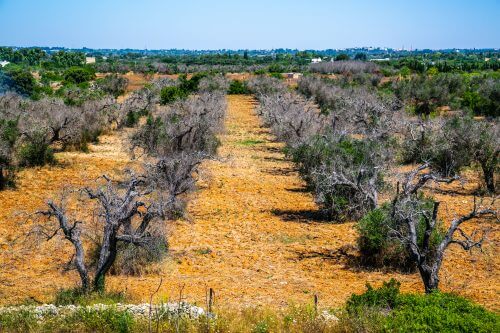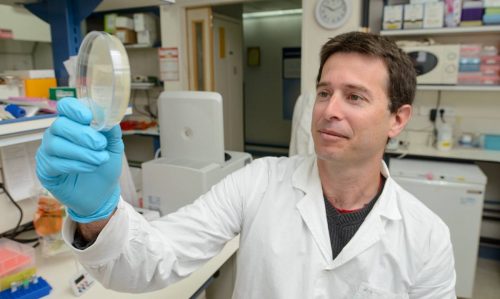A new company that develops biological solutions to treat bacterial infections in agriculture based on discoveries by Weizmann Institute of Science scientists

Since 2013, a mysterious disease has been affecting millions of olive trees in the Puglia region of southern Italy - home to one of the most luxurious olive oil industries in the world. The causative agent of the disease is the bacterium Xylella fastidiosa which is transmitted to the trees by a small insect. The disease, which causes the trees to dry out and is defined by the European Commission as "one of the most dangerous in the world", is just one example of bacterial infections that can spread like an epidemic and destroy agricultural crops. New news for farmers facing these threats may come from a recently established company that develops biological solutions to treat bacterial infections based on discoveries by Weizmann Institute of Science scientists. At the beginning of July 2019, the innovation fund of the German chemical giant Bayer and the Israeli investment group Trendlines announced a first investment in this company called Acupage (EcoPhage).
It has been known for decades that viruses called bacteriophages ("bacteria predators" in Greek) can destroy disease-causing bacteria. However, until now, agricultural applications based on phages have not been developed, since there was no suitable technology to determine the phages mix necessary to effectively fight bacteria. The laboratory of Prof. Rotem Sorek from the department of molecular genetics at the institute is a world leader in researching the interactions between bacteria and viruses. A technology developed in this laboratory makes it possible to harness the bacteriophages to the farmers' war against the bacteria that harm the crop. Prof. Sorek says: "Bacteriophages can effectively eradicate the disease-causing bacteria in plants, without harming the 'good' bacteria. This is a very powerful agricultural solution, since the phages have no effect on the plants themselves."

The research will be implemented by the Ecopage company
Ecopage recently signed an exclusive license agreement with Yedah, the institute's applications arm, which allows it to develop applications based on these discoveries. "The company is the result of an intensive collaboration that lasted about a year between 'Yida', Bayer and Trendlines," said Steve Rhodes, chairman and CEO of Trendlines, upon the establishment of the company. "We are excited by the tremendous potential of this new company and look forward to seeing it become a significant player in the field of agricultural crop protection." The Bayer and Trendlines Innovation Fund was established in April 2016 as a partnership between the Trendlines Group, which specializes in investing in innovative medical and agricultural technologies, at an early stage, and the agricultural arm of the Bayer Group - Bayer CropScience. The partnership agreement includes an investment by Bayer in the amount of 10 million dollars.

One response
In Georgia, already in the 80s, they managed to treat human bacterial diseases using bacteriophages.